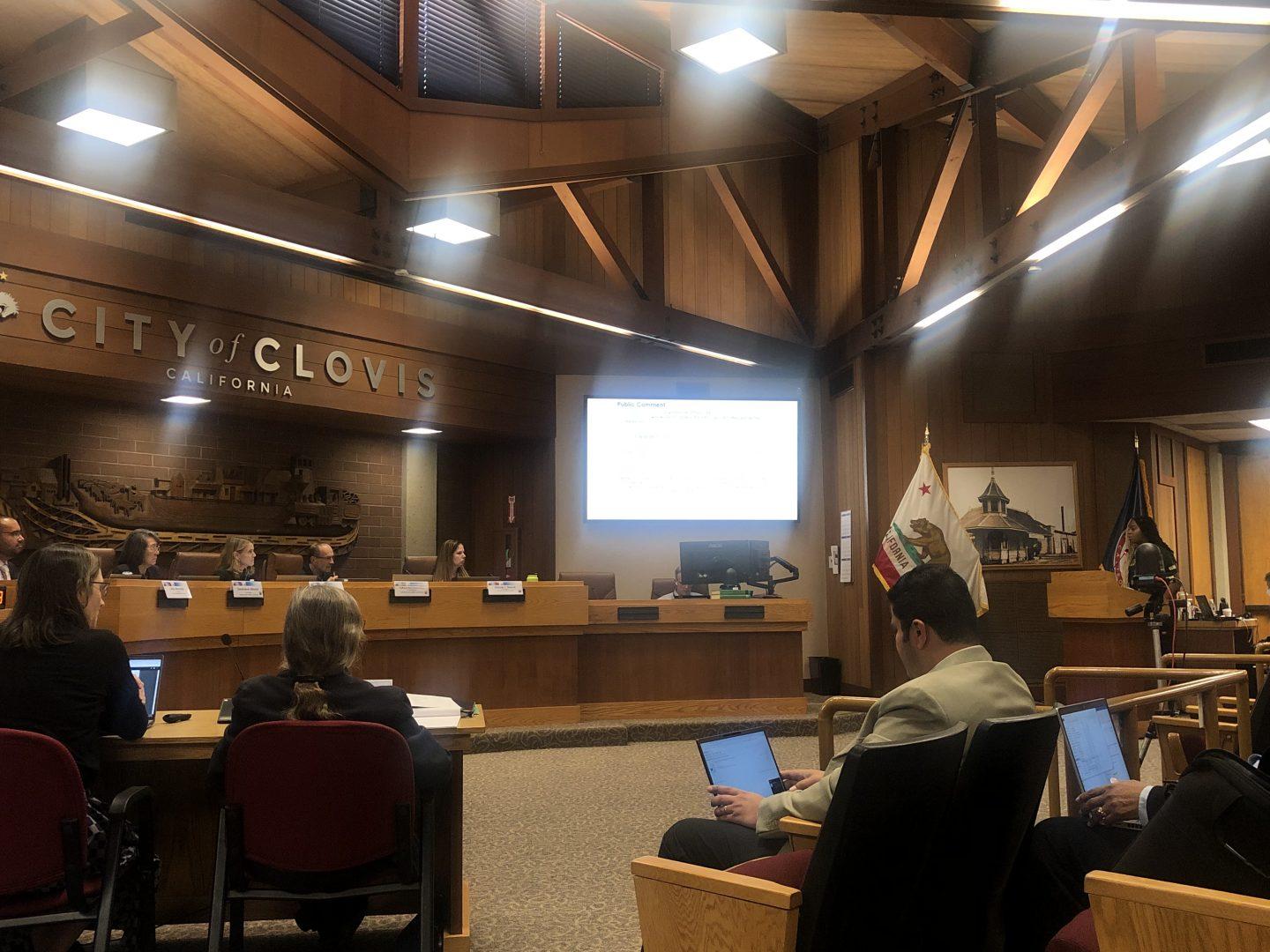Fresno State students could be paying more for broadband services if a state commission gets its way.
On Oct. 6, the California Public Utilities Commission (CPUC) will vote whether or not California residents can utilize both federal and state programs for discounted broadband services.
The proposed decision the CPUC will be voting on plans to reduce or remove California LifeLine Service Plan subsidies, like broadband, if people receive more than $9.25 in federal subsidies.
This is in response to the passing of the Infrastructure Investment and Jobs Act by Congress in 2021, which created a longer-term broadband affordability program, the Affordable Connectivity Program (ACP).
“California LifeLine wireless service plans that receive an ACP subsidy should receive a California LifeLine Specific Support Amount (SSA) of $0,” the proposed decision states. “California LifeLine should not provide a higher subsidy than needed.”
This is creating organized opposition toward the proposed decision, from Fresno NAACP, local activists and the Fresno State community.
At present, people can get a subsidy of up to $16.23 monthly with California LifeLine, plus up to $9.25 from Federal LifeLine if needed. The commission proposal calls for members of California LifeLine not to exceed a total service limit of $39. Other federal programs besides Federal LifeLine can exceed that limit.
The federal connectivity program offers a discount of up to $30 per month toward internet service, $75 per month for households on qualifying tribal lands and a one-time discount of up to $100 to purchase a laptop, desktop computer or tablet.
People eligible for the program are those who qualify for the Supplemental Nutrition Assistance Program, Medicaid, Section 8 housing and more. Students are eligible for the federal subsidies if they receive free and reduced-price school lunch or receive a Federal Pell Grant.
The proposal before the CPUC states that because the federal ACP offers enough resources for broadband, it shouldn’t be paired with California LifeLine.
The average monthly cost of internet service is $36.33 nationwide, but for faster speeds it can range from $75 to $100, according to Forbes.
“If [CPUC] cut their funding from [California LifeLine] and [then] try to leverage the federal government to increase the funding, so many families in the Central Valley and throughout our state will lose their broadband internet access,” said D’Aungillique Jackson, a Fresno State student and former Associated Students Inc. president.
Jackson protested against the proposed decision during the CPUC’s Sept. 15 special meeting at the Clovis City Council Chambers building. The meeting started with public comments, and Jackson was one of the speakers demanding the commission vote no on the proposed decision.
Rashid Sidqe, a community activist, drove from Sacramento to attend the meeting in Clovis. He ran nonprofit organizations, worked with the NAACP and led protests for the Black Lives Matter. He spoke in front of the committee to advocate against the proposed decision.
“We have a lot of farmworkers who have been fighting really hard for broadband. I know [broadband services] were implemented during the pandemic, but we’re still coming out of this pandemic,” Sidqe said.
He said low-income communities in the Central Valley will be hit the hardest, from students, unhoused people and the elderly.
“They all need broadband. Broadband is not a luxury anymore. It’s a necessity,” Sidqe said.
Jackson told the committee that students like her already struggle with other utility bills due to inflation, so they need both California LifeLine and ACP.
“My rent increases by the year. My PG&E increases by the month. And when I go out there to try and find jobs so I can pay for [those bills], I come back and find that I’m no longer eligible for your programs,” Jackson said to commission members.
The National Lifeline Association (NaLa) does not support the proposal. According to the proposed decision, the association argued the commission can’t deny subsidies from those accepting federal benefits because it argues that it goes against the Federal Communications Commission rules
“NaLA argues that the Staff Proposal is in conflict with Order FCC-22-2 (ACP Order). NaLA argues that California cannot elect to not provide state subsidies for California LifeLine service plans that receive an ACP discount,” the proposed decision said.
Jackson then asked the CPUC whether or not commission members reached out to college students.
She talked about how Fresno State students who don’t have internet for homework can utilize both broadband programs. Fresno State’s DISCOVERe’s mobile technology program provides personal hotspots, but it requires nine units of online coursework.
Jackson told The Collegian that it’s important to advocate for the CPUC to vote no because it affects students close to home.
“It’s programs like this that I’m going to be dependent on… As somebody who’s coming up into the world, that’s going to devastate me. On top of rising rent. On top of increased cost of gas,” Jackson said.
She added that this will impact Fresno State students, including those who are younger and dependents as well as those living on their own.
Sidqe told The Collegian broadband services are important because it is needed for everything. Doctor’s appointments, sending emails and connecting with people online all requires the internet. A lot of students need these programs for their online courses, he said.
The pandemic showed elementary and high school students will need this too, he said
“In today’s society, you can’t do anything without the internet. And so for the most marginalized populations not to have internet, it’s an injustice,” Sidqe said.
He encourages Fresno State students to contact their California assembly members and senators that represent their areas to advocate against CPUC’s proposed decision.
Jackson agreed.
“This is just one other cost that we’re going to see just skyrocket, and for what reason? Who is it benefiting if not the corporation when it should be benefiting the people?” she said.




